If you’re looking to stream or record video in stunning 4K resolution, a 4K HDMI encoder is a must-have tool. Whether you’re a content creator, gamer, or professional broadcaster, these devices ensure your video quality is top-notch. In this guide, we’ll explore what a 4K-HDMI encoder is, how it works, and how to choose the best one for your needs. We’ll also include product recommendations, a buying guide, and FAQs to help you make an informed decision.
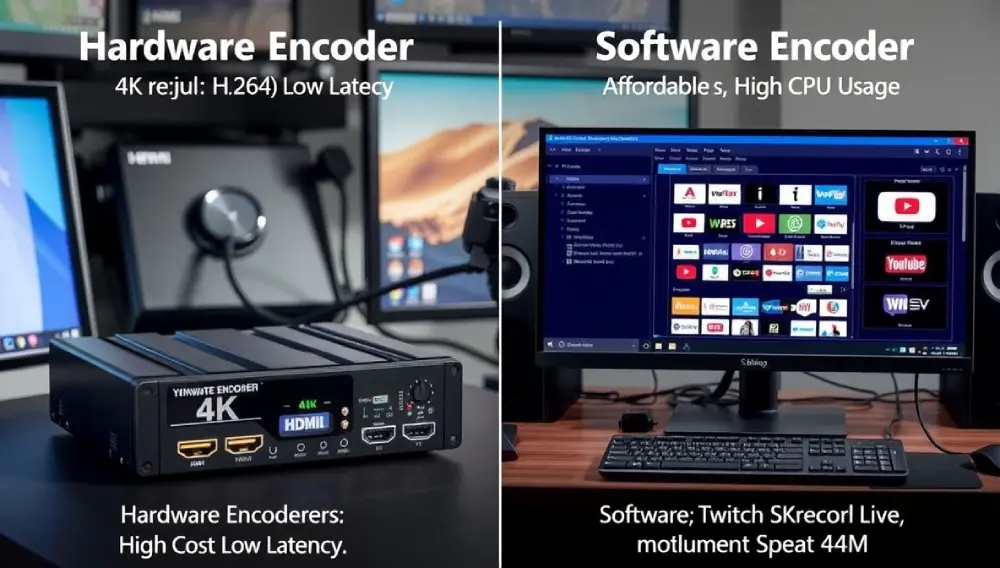
Amazon Newest Arrivals $ 159.00
What is a 4K-HDMI Encoder?
An HDMI encoder is a device that captures high-quality video and audio from an HDMI source (like a camera, gaming console, or computer) and converts it into a digital format for live streaming or recording. It supports 4K resolution, delivering crisp, detailed visuals that make your content stand out.
How Does a 4K Encoder Work?
- Input: The encoder receives uncompressed video and audio signals via HDMI.
- Encoding: It compresses the data using codecs like H.264 or H.265 to reduce file size without sacrificing quality.
- Output: The encoded data is sent to a streaming platform (e.g., YouTube, Twitch) or recorded for later use.
Why Do You Need a 4K Encoder?
HDMI encoders are essential for:
- High-Quality Streaming: Deliver crystal-clear 4K video to your audience.
- Professional Broadcasting: Ensure reliable, low-latency streams for live events.
- Content Creation: Record gameplay, tutorials, or presentations in stunning detail.
- Multi-Platform Streaming: Broadcast to multiple platforms simultaneously.
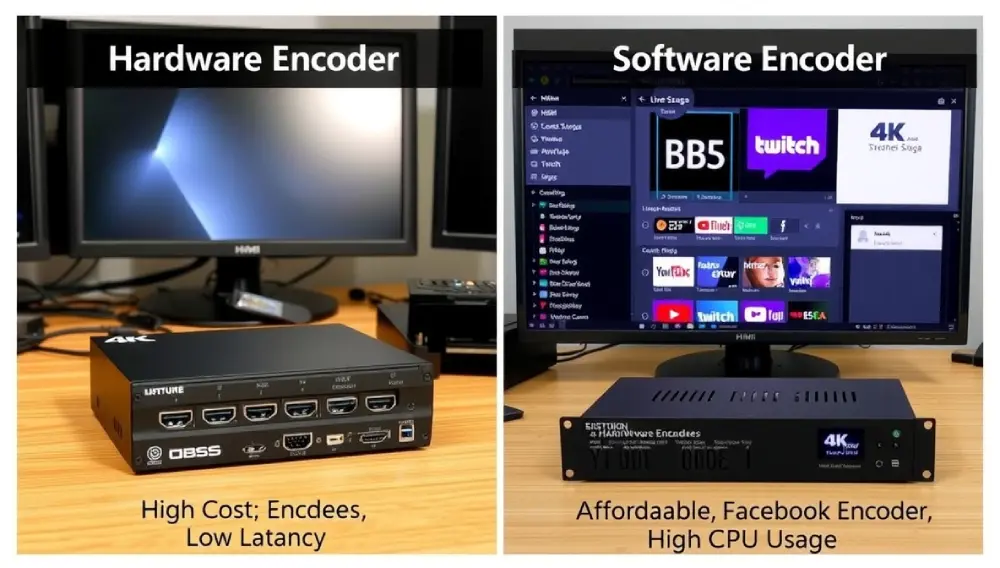
Types
There are two main types of 4K-HDMI encoders:
1. Hardware Encoders
These are standalone devices designed for high-performance encoding.
- Pros:
- Dedicated processing power for smooth encoding.
- Low latency for real-time streaming.
- Reliable and durable.
- Cons:
- Expensive compared to software encoders.
- Less flexible for customization.
2. Software Encoders
These are programs that run on your computer and use its resources for encoding.
- Pros:
- Affordable or free (e.g., OBS Studio).
- Highly customizable with plugins and settings.
- Easy to set up and use.
- Cons:
- Can strain your computer’s CPU and GPU.
- May not support 4K encoding on lower-end systems.
Product Recommendations
Here are some of the best HDMI encoders on the market:
1. Blackmagic Design ATEM Mini Pro
- Pros:
- Supports 4K streaming and recording.
- Built-in multi-camera switcher.
- Easy to use with a user-friendly interface.
- Cons:
- Expensive for casual users.
- Requires a powerful HDMI source.
2. Elgato 4K60 S+
- Pros:
- Records and streams in 4K at 60 FPS.
- Standalone recording to an SD card.
- Compact and portable.
- Cons:
- High price point.
- Limited to H.264 encoding.
3. AJA HELO Plus
- Pros:
- Supports 4K HDR streaming.
- Built-in storage for standalone recording.
- Reliable and professional-grade.
- Cons:
- Expensive.
- Slightly bulky design.
4. Magewell Pro Capture HDMI 4K Plus
- Pros:
- High-quality 4K capture with low latency.
- Compatible with popular streaming software.
- Compact and easy to set up.
- Cons:
- Requires a computer for encoding.
- No standalone recording option.
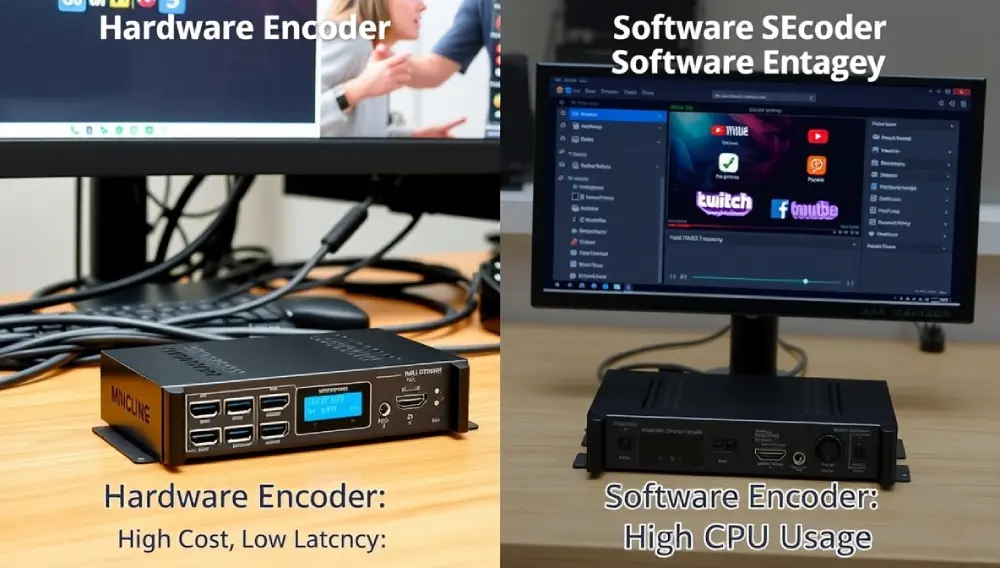
Buying Guide: How to Choose the Right 4K Encoder
Choosing the right HDMI encoder depends on your needs, budget, and technical expertise. Here’s a step-by-step guide to help you decide:
1. Determine Your Use Case
- Gaming: Look for low-latency encoders like the Elgato 4K60 S+.
- Professional Broadcasting: Choose reliable hardware encoders like the AJA HELO Plus.
- Content Creation: Consider versatile options like the Blackmagic Design ATEM Mini Pro.
2. Check Compatibility
- HDMI Sources: Ensure the encoder supports your camera, console, or computer.
- Streaming Platforms: Verify compatibility with platforms like YouTube, Twitch, or Facebook Live.
3. Consider Video Quality
- Resolution: Ensure the encoder supports 4K resolution.
- Frame Rate: Look for 60 FPS support for smooth video.
4. Evaluate Your Budget
- Software Encoders: Affordable or free options like OBS Studio are great for beginners.
- Hardware Encoders: Ideal for professionals but come at a higher price.
5. Look for Additional Features
- Multi-Camera Support: Essential for professional setups.
- Standalone Recording: Useful for on-the-go content creation.
- Low Latency: Important for real-time interactions with viewers.
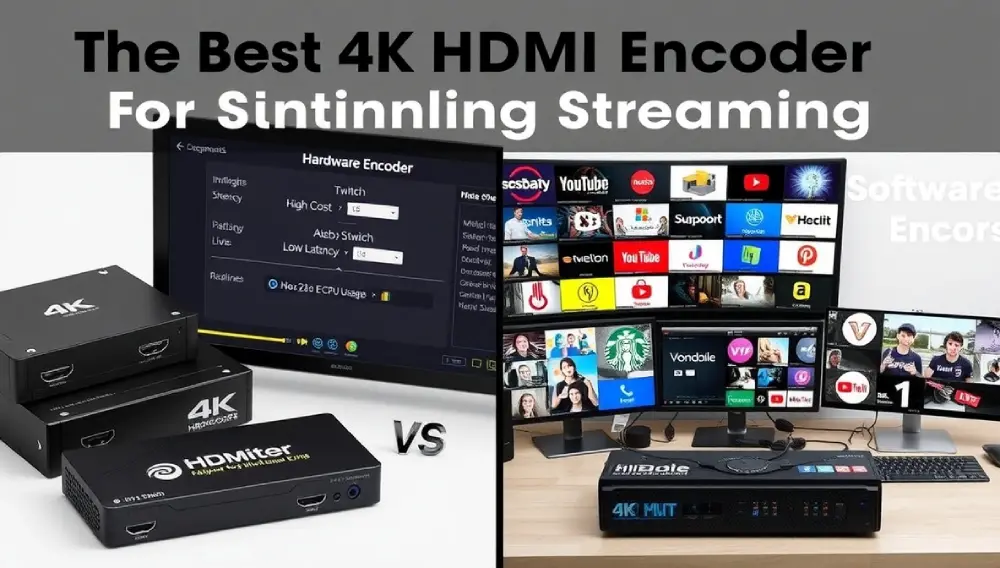
Personal Experience
As a content creator who streams gaming and tutorials, I’ve used several HDMI encoders. The Elgato 4K60 S+ has been a game-changer for its standalone recording feature, allowing me to capture high-quality footage without relying on my computer. However, for multi-camera streams, I prefer the Blackmagic Design ATEM Mini Pro for its versatility and ease of use. Both devices have their strengths, but the choice ultimately depends on your specific needs.
FAQs
1. What’s the difference between H.264 and H.265?
H.265 offers better compression and quality than H.264 but requires more processing power.
2. Can I use a 4K encoder for live streaming?
Yes, most HDMI encoders support live streaming via RTMP.
3. Do I need a powerful computer for 4K encoding?
For hardware encoders, no. For software encoders, a powerful computer is recommended.
4. What internet speed do I need for 4K streaming?
You’ll need at least 20 Mbps upload speed for smooth 4K streaming.
5. Can I stream to multiple platforms at once?
Yes, some encoders like the Blackmagic Design ATEM Mini Pro support multi-platform streaming.
Conclusion
A 4K HDMI encoder is an essential tool for anyone looking to stream or record high-quality video. Whether you’re a beginner or a professional, choosing the right encoder can elevate your content and ensure a seamless streaming experience. For casual users, software encoders like OBS Studio are a great starting point, while professionals may prefer hardware encoders like the Elgato 4K60 S+ or Blackmagic Design ATEM Mini Pro.
By following this guide, you’ll be well-equipped to select, set up, and optimize your 4K-HDMI encoder for stunning video quality. Happy streaming!
More Blog: streaming encoder
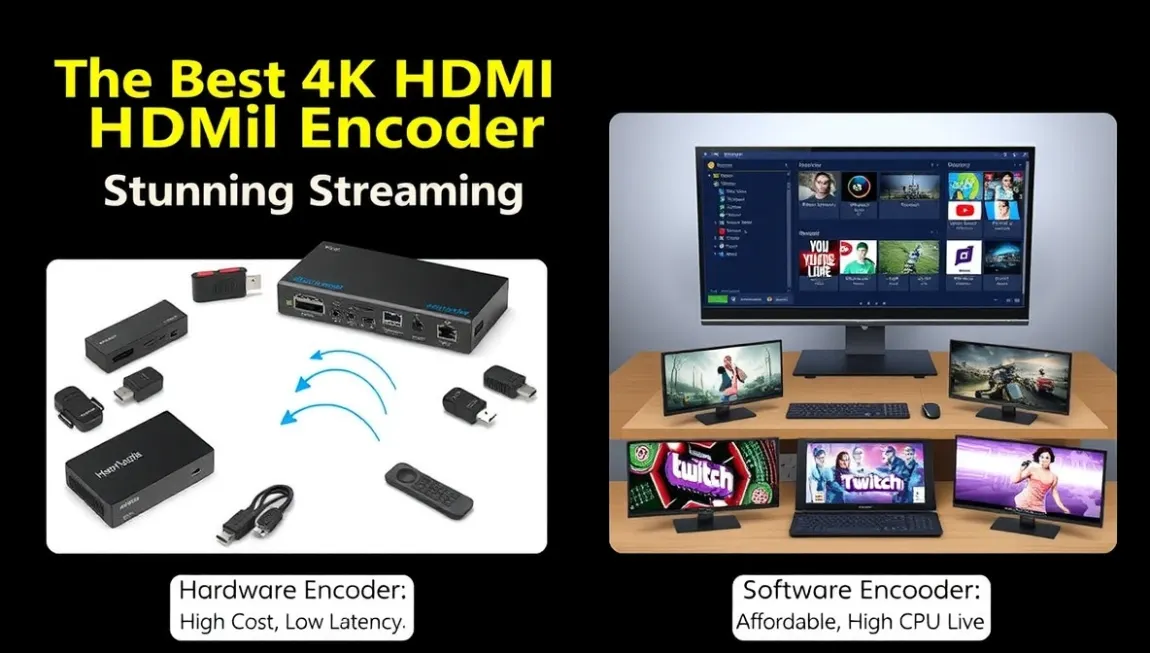

1 thought on “The Best 4K HDMI Encoder Stunning Video Streaming”